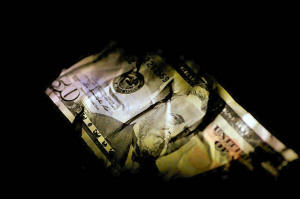|
Dollar gains, metals wane as China grabs
for monetary easing
 Send a link to a friend
Send a link to a friend
 [July 19, 2018]
By Marc Jones [July 19, 2018]
By Marc Jones
LONDON (Reuters) - The dollar stayed strong
but metal markets buckled badly on Thursday, as signs that China was
resorting to credit-fueled stimulus again and trade jitters helped drive
its currency to a one-year low.
Asian shares had struggled following the moves and Europe's bourses were
also in the red as traders banked some of the recent gains that had
hoisted the STOXX 600, the DAX and the CAC40 to 1-month highs. [.EU]
Britain's Brexit-bruised pound was still suffering, falling below $1.30
for the first time in ten months, as stronger retail sales figures did
little to repair the damage done by constant political turmoil and
Wednesday's weak inflation data.
The yen at 113 per dollar, euro at $1.16 and most other European
currencies were all weaker too. Instead of politics though they were
just unable to fend off another advance from a dollar now near a 1-year
high. [/FRX]

"Sentiment right now is still very much in favor of buying the dollar,"
said Crédit Agricole FX strategist Manuel Oliveri.
"It is positively correlated with risk appetite and risk appetite
remains supported by the U.S. earnings season and there is a very strong
notion among clients that there is further room for improvement."
That appetite got its latest boost as S&P 500 rose to its highest in
more than five months on Wednesday, the Dow Jones climbed for a fifth
session and the 'FANGs' group of big tech giants hit fresh all-time
highs. [.N]
Ongoing trade jitters and developments in China however meant Asia had
been a different picture.
China central bank plans to incentivise banks to expand lending to
companies, a source with direct knowledge of the matter said, a proposal
that points to another shot of stimulus.
China's foreign-exchange regulator meanwhile said it would keep currency
markets stable amid intensifying trade frictions with the United States.
The worries had pummeled the yuan to a one-year low of 6.7800 per dollar
and 6.7427 in offshore and onshore trade. [.SS]
The technology-heavy Shenzhen Composite stocks index shed 1.0 percent
and Shanghai Composite index fell 0.6 percent to head back towards a
1-1/2-year low it had set earlier this month. [.SS]
[to top of second column]
|

A U.S. Dollar note is seen in this June 22, 2017 illustration photo.
REUTERS/Thomas White/Illustration/File Photo

"Market players are looking at both the onshore and offshore exchange
rate to determine whether or not the People's Bank of China is
intentionally allowing a weaker yuan," said Ayako Sera, market
strategist at Sumitomo Mitsui Trust Bank.
"If the difference between the two markets becomes too big, that
could mean the PBOC is intervening in the market."
She noted that although the spread between offshore and onshore yuan
had widened recently, it was still far from the levels it hit during
the Chinese financial market shock in 2015 when the central bank was
seen intervening heavily.
METALS MELT
Metals markets were also in the firing line again. China is the
world's biggest consumer of most industrial metals so worries about
its economy can have a serious impact.
Copper and nickel were both down over 2 percent on London's metal
exchange, while zinc was down more than 3 percent and lead shed 2.5
percent. [MET/L]
Oil and gold also dropped again. Gold hit another one-year low of
$1218.34 per ounce, while Brent and WTI U.S. crude futures were down
80 and 53 cents at $72.10 and $68.20 a barrel respectively.
Brent has fallen almost 9 percent from last week's high above $79 on
emerging evidence of higher production from Saudi Arabia and other
members of the Organization of the Petroleum Exporting Countries as
well as Russia and the United States.

"The outlook remains negative," said Robin Bieber, technical analyst
at London brokerage PVM Oil Associates.
(Additional reporting by Christopher Johnson in London and Tomo
Uetake in Tokyo; Editing by Matthew Mpoke Bigg)
[© 2018 Thomson Reuters. All rights
reserved.]
Copyright 2018 Reuters. All rights reserved. This material may not be published,
broadcast, rewritten or redistributed.
Thompson Reuters is solely responsible for this content. |